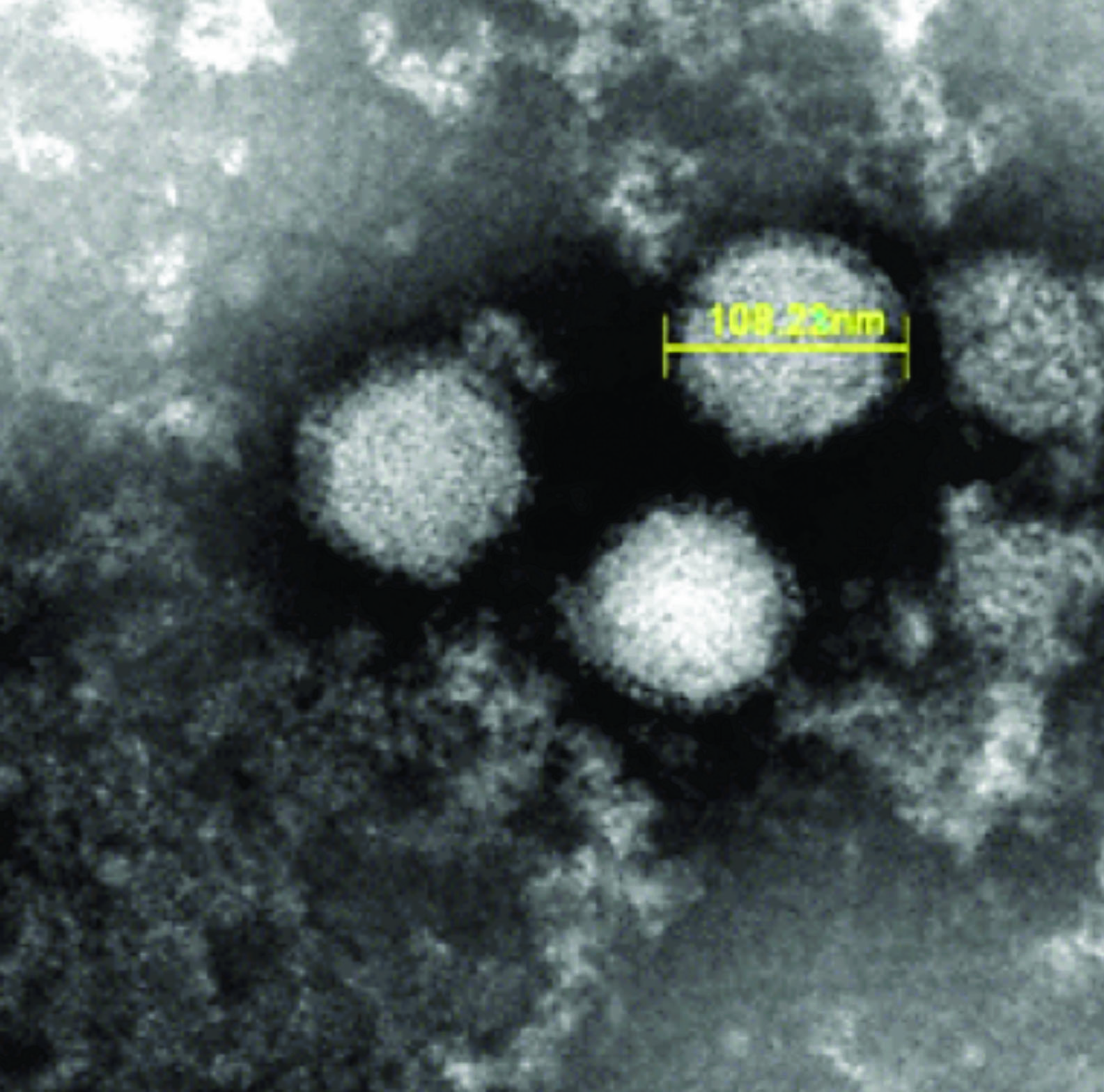Immunoassay Detects Severe Fever with Thrombocytopenia Syndrome Virus
By LabMedica International staff writers
Posted on 25 Apr 2016
Severe fever with thrombocytopenia syndrome (SFTS) is a tick-borne infectious disease with a high case fatality rate, and is caused by the SFTS virus (SFTSV) and the disease is endemic to China, South Korea, and Japan.Posted on 25 Apr 2016
The viral ribonucleic acid (RNA) level in sera of patients with SFTS is known to be strongly associated with outcomes and therefore virological SFTS diagnosis with high sensitivity and specificity are required in disease endemic areas.

Image: A scanning electron micrograph (SEM) of severe fever with thrombocytopenia syndrome virus (Photo courtesy of the Japanese National Institute of Infectious Diseases).
Scientists at the Japanese National Institute of Infectious Diseases (Tokyo, Japan) and their colleagues collected 63 serum samples from 55 acute phase patients suspected of SFTS in Japan. Viral gene detection by the quantitative reverse transcription polymerase chain reaction (qRT-PCR) and viral antibody detection by immunoglobulin G (IgG) enzyme-linked immunosorbent assay (ELISA) and/or indirect fluorescent antibody (IFA) were conducted to diagnose SFTS. From 55 patients, 34 of these were diagnosed as having SFTSV. Serum samples obtained from 18 healthy donors were used to establish the cut-off value of the IgG ELISA. Serum samples used for IgG ELISA were inactivated under the UV light in the biosafety cabinet for one hour.
The investigators generated novel monoclonal antibodies (MAbs) against the SFTSV nucleocapsid (N) protein and developed a sandwich antigen (Ag)-capture enzyme-linked immunosorbent assay (ELISA) for the detection of N protein of SFTSV using MAb and polyclonal antibody as capture and detection antibodies, respectively. The Ag-capture ELISAs were read using an optical density at 405 nm (OD405) was measured against a reference of 490 nm using a Model 680 Microplate Reader (Bio-Rad Laboratories Inc.; Hercules, CA, USA). The Ag-capture system was capable of detecting at least 350 to 1,220 50% Tissue Culture Infective Dose (TCID50)/100 μL/well from the culture supernatants of various SFTSV strains.
All 24 serum samples (100%) containing high copy numbers of viral RNA more than 105 copies/mL) showed a positive reaction in the Ag-capture ELISA, whereas 12 out of 15 serum samples (80%) containing low copy numbers of viral RNA (less than 105 copies/mL) showed a negative reaction in the Ag-capture ELISA. Among these Ag-capture ELISA- negative 12 samples, nine (75%) were positive for IgG antibodies against SFTSV. The authors conclude that the newly developed Ag-capture ELISA is useful for SFTS diagnosis in acute phase patients with high levels of viremia. The study was published on April 5, 2016, in the journal Public Library of Science Neglected Tropical Diseases.
Related Links:
Japanese National Institute of Infectious Diseases
Bio-Rad Laboratories














